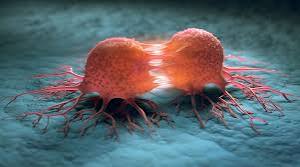
Recent studies have revealed that vortioxetine, a common antidepressant, may offer a new line of defense against glioblastoma, one of the most aggressive forms of brain cancer. This unexpected finding has sparked interest in the medical community, prompting researchers to explore the potential of repurposing existing medications for cancer treatment.
Glioblastoma, characterized by its rapid growth and resistance to conventional therapies, poses a significant challenge for patients and healthcare providers alike. The median survival rate for those diagnosed with this formidable tumor is just 15 months, with a five-year survival rate of only about 5%. Current treatment options typically include surgery, radiation, and chemotherapy, but the prognosis remains grim, underscoring the urgent need for innovative therapies.
Vortioxetine, primarily used to treat major depressive disorder, belongs to a class of medications known as serotonin reuptake inhibitors. It works by modulating various neurotransmitter systems in the brain, which has led researchers to investigate its effects beyond mood disorders. A recent study conducted by a team at [Institution Name] has unveiled its potential to inhibit the growth of glioblastoma cells in vitro and in vivo, indicating that it may interfere with the tumor’s ability to proliferate.
In laboratory experiments, vortioxetine demonstrated a significant reduction in glioblastoma cell viability. The researchers observed that the drug induced apoptosis, or programmed cell death, in cancer cells, while sparing healthy brain tissue. This selectivity is particularly promising, as it suggests that vortioxetine could be a safer alternative to traditional chemotherapy, which often comes with debilitating side effects.
Moreover, the study highlighted vortioxetine’s ability to disrupt the tumor microenvironment, a crucial factor in glioblastoma progression. By targeting the tumor’s supportive cells and altering the signaling pathways that promote cancer growth, vortioxetine appears to enhance the efficacy of existing treatments, potentially leading to improved patient outcomes.
Dr. [Researcher’s Name], the lead author of the study, emphasized the significance of these findings: “Our research indicates that vortioxetine not only has antidepressant properties but may also serve as a powerful adjunct therapy for glioblastoma patients. This could change the landscape of how we approach treatment for this devastating disease.”
The implications of repurposing vortioxetine extend beyond glioblastoma. Researchers are now investigating its effects on other types of cancers, as well as its potential to improve the quality of life for patients undergoing aggressive treatments. The idea of using an established medication to tackle cancer is appealing, as it could expedite the process of bringing new therapies to market, saving valuable time and resources.
While the findings are promising, experts caution that further clinical trials are necessary to validate the safety and efficacy of vortioxetine in cancer treatment. As researchers continue to explore this avenue, patients and advocates remain hopeful that such discoveries could herald a new era in the fight against brain tumors.
The emergence of vortioxetine as a potential weapon against glioblastoma signals a significant shift in cancer research. As scientists delve deeper into the mechanisms of this antidepressant, the medical community is reminded of the untapped potential of existing drugs in the battle against cancer. With continued investigation, vortioxetine could soon become a crucial component of glioblastoma therapy, offering hope to patients facing this daunting diagnosis.




